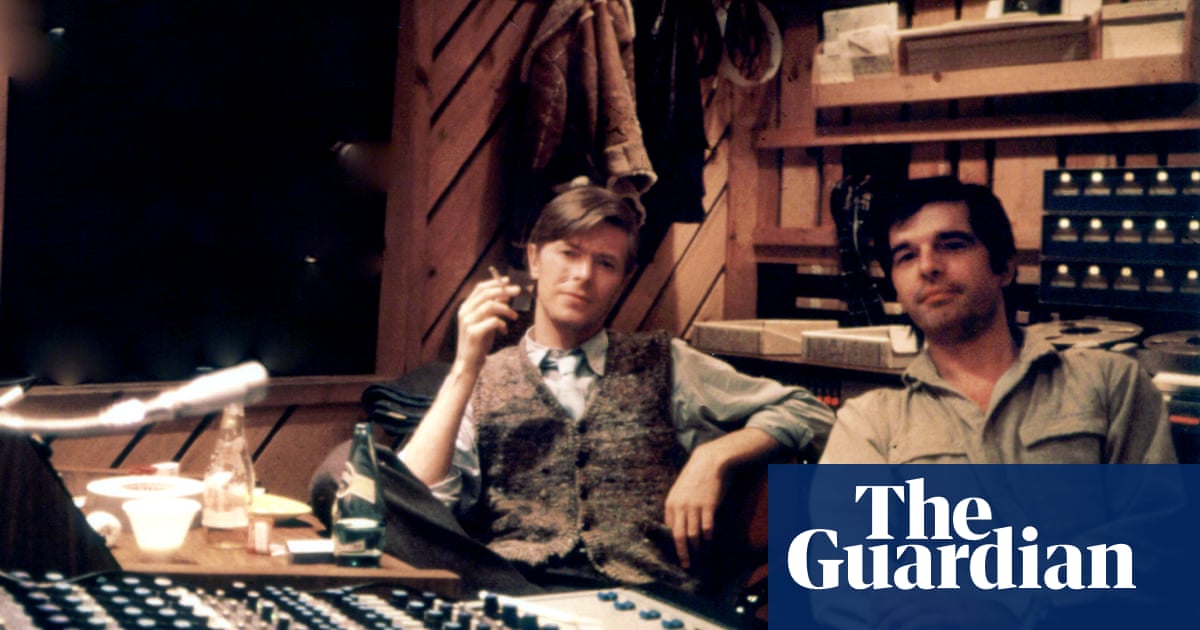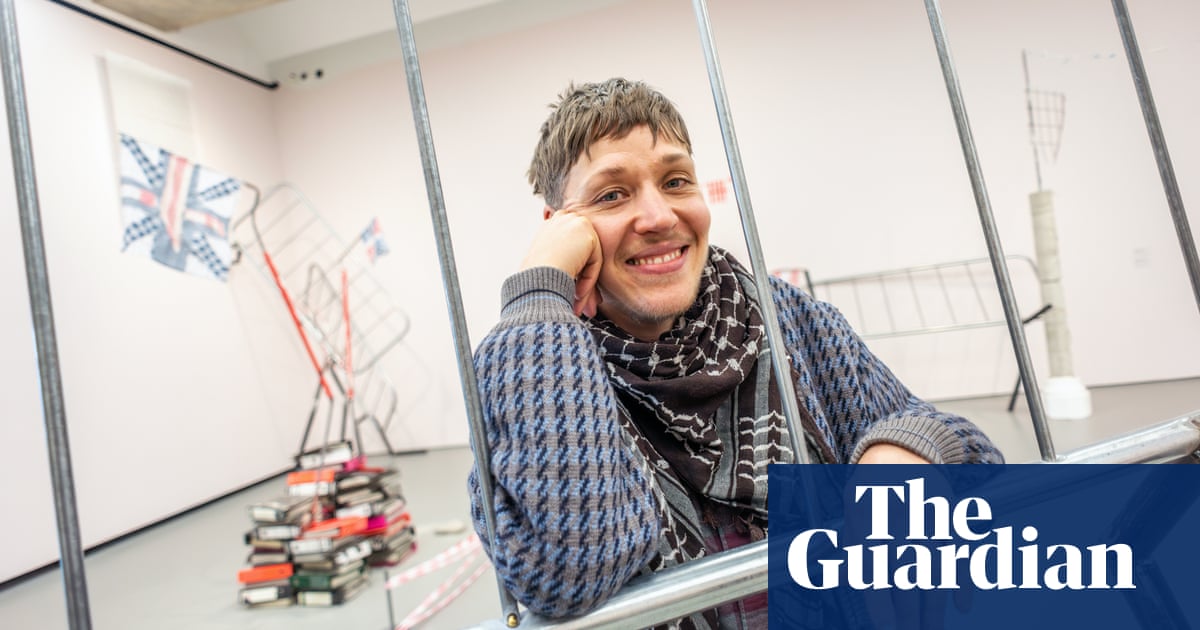
‘You know, had Britten and Pears pitched up on Dragons’ Den with their idea for turning a disused malting house into a concert hall, they’d have been turned away,” says Roger Wright. “There was no business plan!”
But what began with Benjamin Britten’s straightforward idea of transforming a former industrial building by the River Alde in Snape into a hall big enough to house orchestral concerts and operas for his Aldeburgh festival, has, over the decades since, developed into a centre, not just for concerts, but for all the other year-round activities that come under the umbrella of Britten Pears Arts (BPA).
After 10 years at the helm, Wright, is to stand down as chief executive of BPA at the end of July (Andrew Comben, currently in charge of the Brighton festival, replaces him). But no one could accuse Wright of coasting along to his departure. Just a month ago, he announced plans for a big new capital programme for the Snape site that has been the focus for the festival since the concert hall became its principal venue in the late 60s. As well as updating the facilities of the hall and the Britten Pears building – the focus of BPA’s community and educational programmes – and reducing their carbon footprints, the scheme includes plans for developing more of the site’s still-derelict buildings and reinforcing its flood defences.
Meanwhile, as the scope of BPA expands, the summer festival, still the highest profile part of the organisation’s activities, continues to flourish. At a time when a number of similar classical music festivals, such as Bath and Cheltenham that were also launched in the postwar era of optimism and regeneration have become the palest shadows of their former selves, Aldeburgh remains perhaps the only one that offers the same range and artistic standards that it has nurtured over the last three-quarters of a century.
Wright is well aware of his responsibility for maintaining those standards. “We live in an uncertain time for music,” he says. “The landscape in which we used to exist, and in which classical music festivals once flourished, has changed. In fact, given how little seeming importance is actually placed on it, we shouldn’t rightly expect to get the level of work – the quality of compositional work, the quality of performance – that we actually do.” [interview continues below]
Roger Wright picks his Aldeburgh festival highlights 2015-2024
Les Illumininations (2016) “A circus theatre performance staged by Struan Leslie, culminating in Britten’s Les Illuminations, performed by Sarah Tynan – an astonishing feat of musical and physical virtuosity.”
Billy Budd (2017) “Opera North’s semi-staging of Britten’s Billy Budd with Roderick Williams in the title role, was the first time the opera has been performed in Snape Maltings – the stunned silence of the close demonstrated its impact.”
Lockdown concerts (2020/21) “With so many venues closed, there was a joy in presenting concerts to an audience desperate to hear music and by performers who were moved by the reconnection to the live experience – including Sheku and Isata Kanneh-Mason, Nicola Benedetti, Jess Gillam and the Chineke! Ensemble.”
Oliver Knussen Day (2022) “A celebration of the late composer/conductor who was a former director of the festival – and which included the premiere of his unfinished orchestral Cleveland Pictures.”
Judith Weir: Planet (2024) “Weir’s shimmering and radiant orchestral piece was premiered to a rapt audience by the Knussen Chamber Orchestra – side by side students and professional mentors. It’s a piece which will surely last, giving hope for the future of classical music.”
Wright, 67, began his career in orchestral management and concert planning, working for the Cleveland Orchestra and then Deutsche Grammophon, before returning to Britain to become the controller of BBC Radio 3 and then of the Proms too. But in the decade Wright has been in Snape it has sometimes seemed that as much of his energy and imagination has been taken up with administration and developing the real estate as with the artistic side of things. Concert planning and programming are still what he likes doing most of all, he says, but nonetheless he has found himself running an operation that employs almost 200 people.
“I was really clear that I’d never be called ‘festival director’,” he says. “My job is being chief executive of the whole organisation. Yes, I’ve got a hand on the programming tiller, but the spirit of the festival is to have particular people programming different parts of it, as it was when Imogen Holst programmed parts during Britten’s lifetime, and when John Woolrich and Tom Adès were working together [in the late 2000s]. And the people I’ve invited here – Barbara Hannigan, Thomas Larcher, Patricia Kopatchinskaja, Roderick Williams, and, this year [violinist] Daniel Pioro and [cellist] Alban Gerhardt, have been the sort of perfect instrumentalists to be able to say: ‘Let’s just plan something together.’”
Ever since Britten’s death in 1976, the festival has had a distinguished series of musicians who were part of the artistic leadership team, including Mstislav Rostropovich, Simon Rattle, Murray Perahia and Oliver Knussen, but there has always been an awareness of carrying on what Britten and his partner, Peter Pears, envisaged when the festival began. “The original vision of what can music do in this area to transform lives and bring communities together,” as Wright puts it. From the very beginning, Britten had been at pains to include people of Aldeburgh in the festival, composing such works as the “entertainment for young people” Let’s Make an Opera, the children’s opera Noye’s Fludde and the cantata Saint Nicolas, specifically for amateurs to perform there.
That relationship with the local community continues in the outreach projects that BPA sponsors and initiates across Suffolk, taking music into a local prison, commissioning young composers to write songs for schools, working with people with Parkinson’s disease and dementia, or organising choirs and orchestras for all ages. All that came into sharp focus during the Covid pandemic in 2020 and 2021, when live music across Britain almost entirely disappeared. Wright and his team conjured up weekends of short concerts, which included performers such as Antonio Pappano, Lawrence Power, Ian Bostridge and Sheku and Isata Kanneh-Mason. Each programme was played twice in the Maltings concert hall to socially distanced audiences; every one of them was sold out.
At the BBC, Wright had, of course, overseen a far bigger, wider-ranging programme on Radio 3 and at the Proms. That experience, and the criticism he received there, now makes him tactfully understanding about the difficulties the current controller, Sam Jackson, has been over his changes to the Radio 3 schedule, and concerns over the possible direction the Proms might take in the future, well aware that Jackson is now working in a very different climate from the one he himself experienced more than a decade ago. He dismisses the idea that the character of the Proms has changed fundamentally. People find one or two concerts in the eight-week festival that they don’t like, he says, and therefore the whole thing must have “gone to hell in a handcart”.
He insists that the Proms remains a remarkable and thriving musical institution. “I’ve always been a glass half full rather than glass half empty person. You’ve got to say, look, there are 5,000 people pitching up to hear this concert, and it’s all on radio, and online, and much of it is on television. That’s an enormous number of people. And there are cheap tickets available for thousands. What is there not to celebrate about all of that?”
Commissions were an important element in Wright’s work at the Proms, and he has ensured they have always been prominent at Aldeburgh too; this year, for instance, composers Unsuk Chin and Weir are featured musicians. “We all need to keep putting on lots of new music. There are more than 20 first performances in the festival this year,” he says. “That’s what’s so extraordinary again about the audience here – they have been trained over the years and they trust the brand of the festival. They trust the organisation. Yes, they will fall lovingly into the arms of Schubert’s Trout Quintet, but they will also let you give them Messiaen’s Catalogue d’Oiseaux played across 24 hours, or a day of Helmut Lachenmann.”
It is clear that when he leaves Snape, Wright will be leaving a very healthy musical culture behind him. But beyond spending the summer in the US at the festivals at Tanglewood and Marlboro, he insists that he has no idea what he is going to do next. He is unlikely to be short of offers, and he is hardly thinking of retiring – “Well, nobody retires these days, do they? My wife said to me, ‘So you’re graduating’, which I actually think is rather nice, rather than retiring.”
The Aldeburgh festival continues until 23 June.












